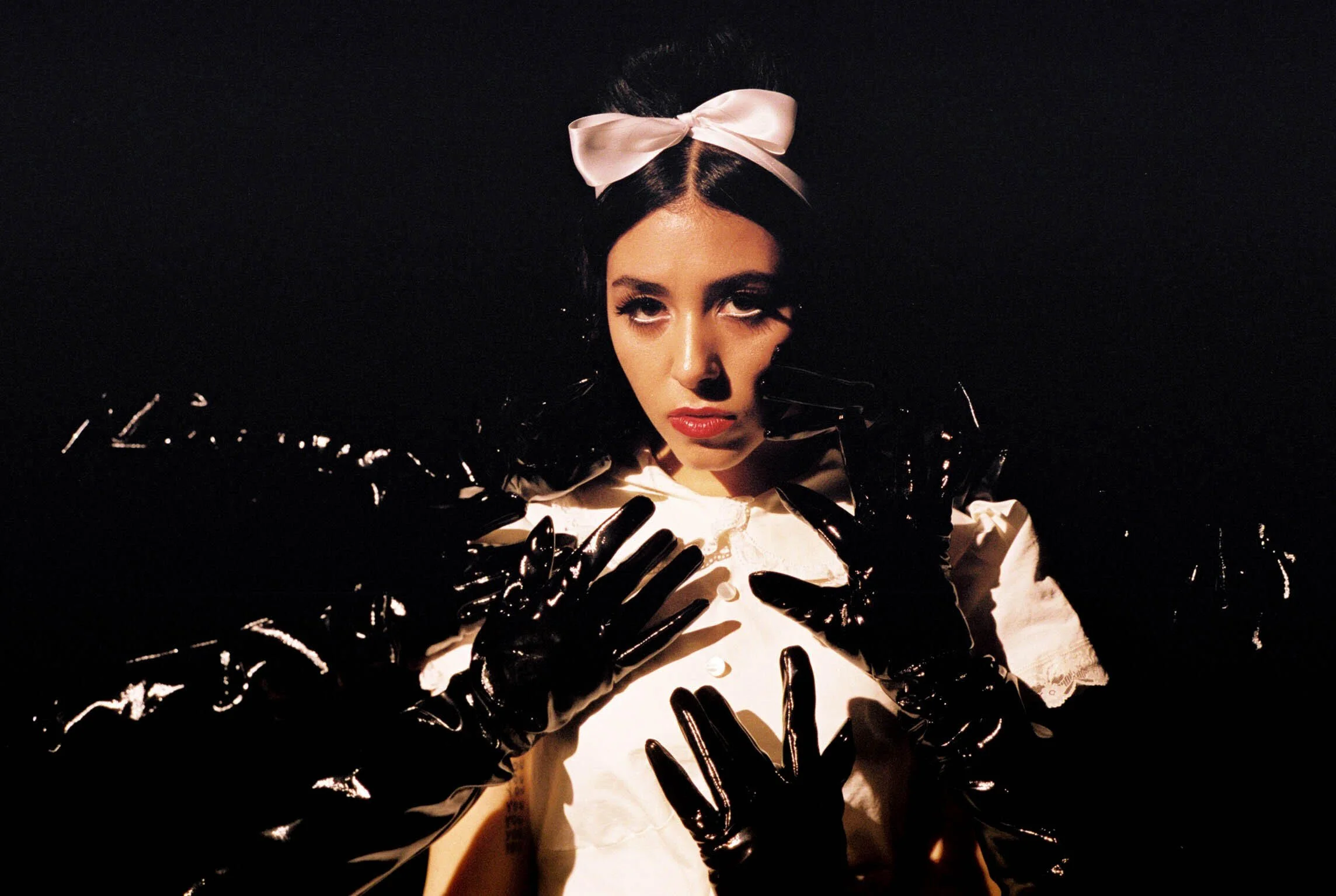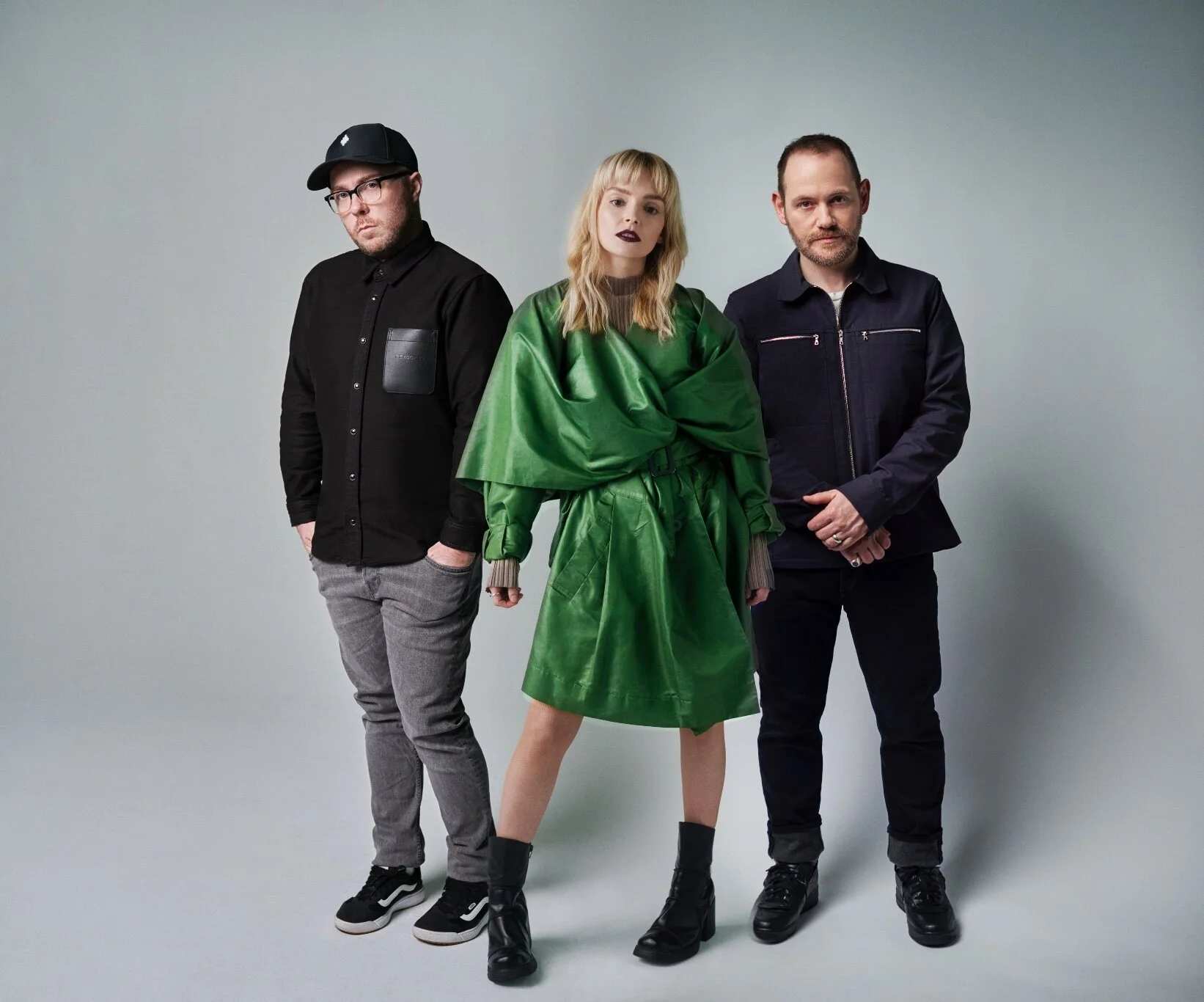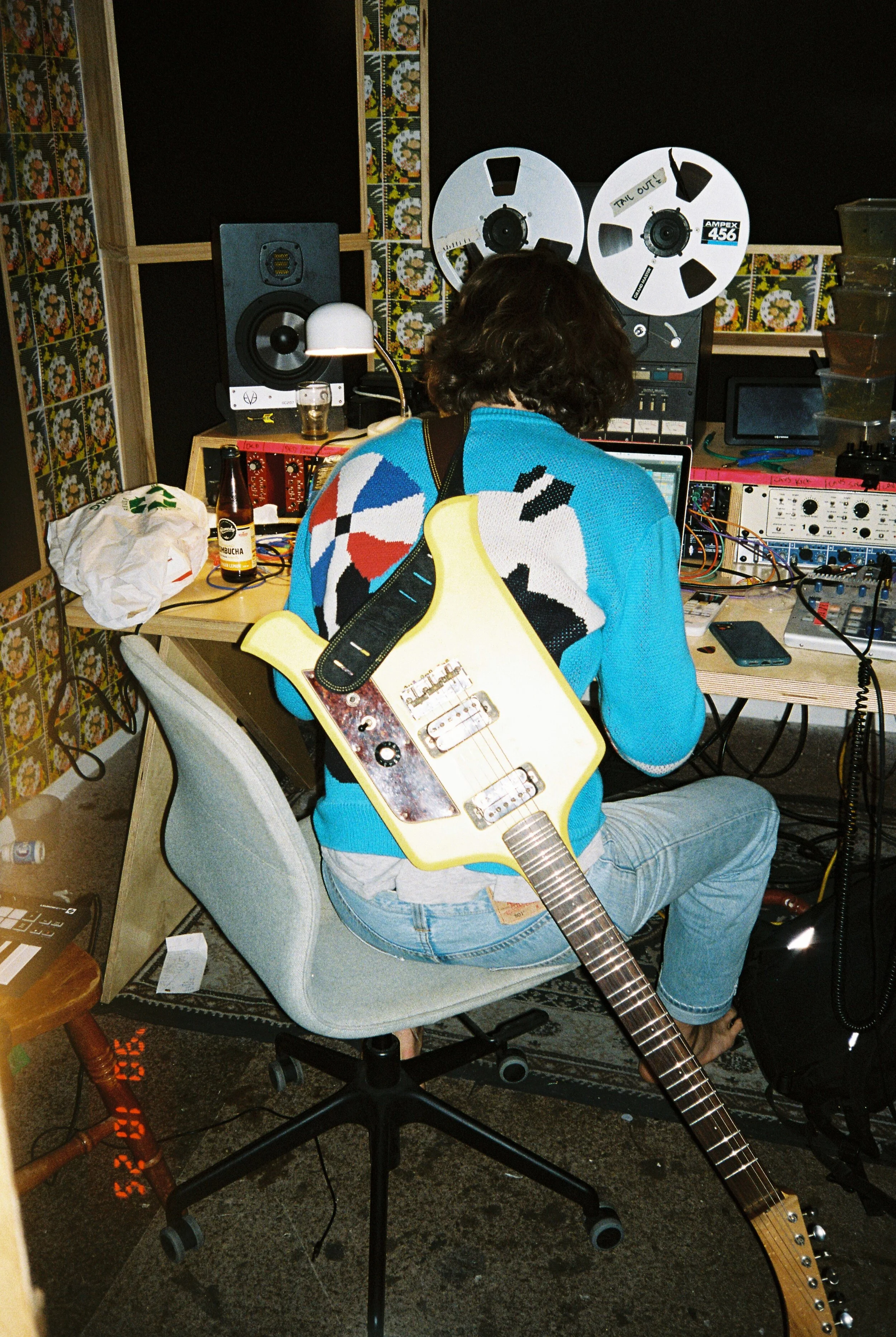Walter Martin
“My songwriting ideas have to be organic. Otherwise, I can get too much in my head, and it comes from the wrong place.”
Walter Martin’s most efficient writing process involves not sitting down with the intent to create. Also: being hungover helps.
Like most songwriters tell me—Britt Daniel of Spoon was the last one—Martin does not sit down to write a song. “When that happens, it comes out the wrong way. I start to sound too smart or like poet,” he says. Instead, he’s writing all the time by constantly observing his surroundings. Song ideas come to Martin throughout the day, like when he’s mowing the lawn, and that’s when he whips out the phone to record those ideas. So when he finally sits down to write, there’s a wealth of source material.
Martin does find one state of mind to be especially productive: hungover. More than a few songwriters have told me that having a hangover is a great state of mind to write in. Most tell me that it’s because the pain gives them a sense of serenity. But Martin’s theory is pretty simple: the residual alcohol gives his head just enough looseness to spur his creativity.
Walter Martin’s latest album The Bear is out March 23. Listen to our interview below!
For Mia Berrin of Pom Pom Squad, how a song looks is as important as how it sounds. And her latest album Death of a Cheerleader looks and sounds like red.
Lauren Mayberry of Chvrches has a songwriting process that involves spreadsheets, Pinterest boards, and hotel pens. And a jar full of scrap paper.
I’ve been a fan of King Gizzard for a while, but when I realized that they put out five albums in one year (2017) and had sixteen studio albums over the course of ten years, I had to discover how Mackenzie creates. Surely this man is always creating. Surely he spends all day thinking about songs. Surely he gets anxious when he’s not creating something, anything, right?
The experiences of Tim Showalter (Strand of Oaks) and Jessica Dobson (Deep Sea Diver) during the pandemic couldn’t be more different. Showalter’s tour cycle for his last album Eraserland ended in February; this meant the quarantine had little impact on his songwriting cycle since he already planned on spending 2020 writing. Dobson fared differently: Deep Sea Diver released Impossible Weight in October, so of course they were unable to tour behind the album, which threw all their plans out the window.
For Stone Gossard of Pearl Jam and Mason Jennings, songwriting involves whole body movement and lots of swinging of the limbs. It also involves both temporal and emotional distance. And that distance was a big asset in creating Painted Shield, their self-titled album.
The idea of ritual is an important one in the creative process. Some artists need the comfort of ritual to create, whether it’s a certain place, time of day, or even a favorite pen. Others thrive on the opposite: discomfort. It’s chaos that makes them thrive. And it’s this discomfort, this unpredictability, that has made Ariel Rechtshaid one of the most sought after and successful producers in the last decade because it’s what drives his creative instinct. He works the best when what he’s presented with—whether it’s an artist, instrument, or even chord structure—is unfamiliar to him.
Every writer imagines that every other writer at that very moment is composing with grace and efficiency, where words pour effortlessly from the pen or keyboard without hesitation. In this world, drafts are completed in no time.
But this is not the case. It’s hardly ever the case. For most of us, writing is intimidating. For Jana Hunter of Lower Dens, lyric writing is usually his least favorite part of the process. “It feels like toil,” he told me.
It's great paradox, right? Sadie Dupuis, songwriter and frontperson for Speedy Ortiz, has an MFA in poetry from the University of Massachusetts. She's been writing poetry for several years. Yet she insists on writing her song lyrics in prose form. They look like paragraphs. She even hates when anyone writing about her music transcribes her lyrics in verse form. "It really does drive me crazy when I see my lyrics reprinted in stanza form. I mean, I'm giving it to them right here. This is the way it should look!"
But it should come as little surprise that Dupuis treats song lyrics this way: her poetry writing and song writing have nothing in common. Her poems start with words and with an idea she'd like to write about, but her songs almost always start with a melody. Sitting down to write poetry and instead coming up with a song "would almost be as if someone sat down to create an oil painting and wound up choreographing a ballet instead," she told me.
Put Bethany Cosentino of Best Coast in a hotel bathroom, and she's one happy songwriter. If you're with her and she's in there for a looong time, don't worry. She's creating. Music.
The traveling ways of the songwriter dictate that they can't be too picky with their environment when it comes to writing. They have to adapt to their surroundings and write whenever they can, wherever they can. But according to Cosentino, environment plays a "huge" role in her songwriting process. When she's at home, she writes in her "music room," which contains nothing but music related stuff, from guitars to CDs to posters. She loves to write there because the room's solitude gives her privacy. "I try on tour to write, but the problem is that I don't want people to hear me when I'm trying to write. I like to be able to make mistakes and sing badly and play really bad chords that don't sound good together. It's a very private process for me that I enjoy doing entirely on my own. A place like that is hard to find on tour."
Oh, to be a young and single songwriter. There are no limits to your creative process: without family commitments, you can write anywhere, anytime. And that's what Ben Bridwell, singer and songwriter for Band of Horses, did. He went to cabins and cabooses, from mountains to ocean shores. Bridwell craves that isolation to write, and he thought it was a necessary component to his process. And that isolation, he believed, couldn't be a quiet room in the house. It had to be far away. (Not all songwriters need solitude, though; many have told me that they prefer to be around at least a little bit of action. There's Cory Branan, who wrote his first two albums in a mall food court. And there's Rhett Miller, who likes venue stairwells, where it's quiet but he not too far from the hustle and bustle of load in.)
Three daughters and a wife later, Bridwell can no longer pack up his notebooks and head to the hills to write like he used to. He's got a family now. But he's found the perfect space: his garage-cum-studio. No one bothers him there, though admittedly they stay away for more practical reasons: according to Bridwell, "it's dark and there are lots of bugs." Having this space made Bridwell realize that it's solitude that matters, not where the solitude is.
At the beginning of our interview, Carl Newman of The New Pornographers said that he didn’t think he had a process. He insisted that he was “absolutely not a disciplined writer.” But as he discovered by the time we finished talking, he does have a process. In fact, it’s happening all the time, probably as you read this.
Newman may not sit down to write every day or may not have structured writing time, but according to him, “There’s an obsession in the back of my head that always makes me think about writing. I’m distracted by the idea of songwriting.” I get the sense that Newman is never not thinking about music. He’s always picking up words or turns of a phrase, and he’s always got melodies in his head. So it’s a nonstop process, even though it’s not a deliberate and conscious one. But the act of actually sitting down to write is “painful,” says Newman.
Read my interview with Carl Newman after the video. We get to the bottom of his creative process, but we also talk about Infinite Jest, his obsession with 10cc, and why lyrics are such a punishing part of his songwriting process. And course, we talk about the role that turn signals and windshield wipers play in his creative process.
What struck me most about my conversation with Ritzy Bryan--the lead guitarist, singer, and songwriter for The Joy Formidable--was the dichotomy of her creative process. On one hand, it's an abstract idea: she uses words like imagination, inspiration, and mind, all of which are channeled through her stream-of-consciousness writing process. And yet she explains all of this so well. It's not easy to talk about vague concepts like these so concretely, but it's a testament to her intelligence and metacognition that she has such a handle on her creative process. Of course, it also helps that she devours books: the back lounge of the band's tour bus is a mini-library.
The Joy Formidable is legendary for their incessant touring schedule. This means that Bryan does a lot of writing on the road, and she can't worry about finding that right moment to write. She describes her writing process--even her actual words on the page--as "chaotic." Bryan never, ever forces the writing process; setting aside time to write, she says, will ruin her creativity. And like any good writer, she recognizes that a large part of her creative process involves soaking up every part of her environment and finding inspiration everywhere, because, in her words, "there's so much variety, even in the most mundane day-to-day schedule." As a result, her songbook is a "mixture of more fully-realized poems and very chaotic words: just word combinations, wordplay, and imagery."
It wasn't easy to talk at first with Hamilton Leithauser of The Walkmen about his creative process. There was something else on our minds: we spoke on the phone the same day that RGIII, the quarterback of the Washington Redskins, had his reconstructive knee surgery. And since Leithauser and I are both Washington DC natives (I still live here while he now lives in New York), we are Redskins fans. So what you won't read here are the first ten minutes of our interview, which reads like an ESPN amateur hour.
Much has been made of the growing maturity of the the members of The Walkmen, friends since childhood who now have families and who are settling into a bit of domesticity. Leithauser has a 21 month old daughter, whom he had just put down for a nap before we talked. He gets his best writing done early in the morning. Early, as in after he gets up at 6am, not early as in 1am or 2am before many songwriters go to bed.
Tim Kasher of Cursive is a multidisciplinary writer: he writes songs, but he also writes screenplays and short stories. It's no surprise that the process of songwriting and the process of writing long form pieces influence each other. What does surprise me, though, is that the process of the former has made him more disciplined when it comes to the latter: Kasher has long been able to sit for long stretches and write songs, something that's more common to fiction writers. Then again, Kasher's songwriting process is somewhat unconventional: this a guy whose ideas come best in the morning after a good night's sleep. That's rare among the 120+ songwriters I've interviewed, most of whom say they work best in the late hours of the night. The phrase "in the morning after a good night's sleep" is not often associated with indie songwriters.















For Yola, songwriting is all about the colliculus. And sometimes a good vacuum.